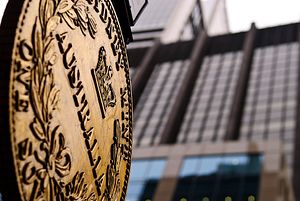If you speak with officials in Australia, they’ll tell you that internationalized grand corruption — the nexus of shell corporations, offshore services, and kleptocrats immiserating their domestic populations — hasn’t touched their country. Rather, as the University of Cambridge’s J.C. Sharman finds in his detailed Despot’s Guide to Wealth Management, Australian officials will insist that Canberra’s current raft of anti-corruption laws have prevented the kinds of kleptocratic cases the U.S. or the U.K. regularly see.
But as Sharman further uncovers, this reasoning is — as private investigators and off-the-record conversations attest — circular. Content to rest upon their supposedly clean record, Australian officials have little incentive to dig any further than they need to and, even then, far less than the law would demand. In reality, while Australia still lags behind Washington or London in terms of being a target destination for kleptocrats ransacking the developing world, Canberra is far more typical for its hear-no-evil, see-no-evil approach to combating grand corruption. As Sharman lays out, even the most stringent anti-corruption and anti-kleptocracy laws are barely worth the paper on which they’re written if officials — such as those in Australia — are unwilling to enforce them.
For instance, look at Australia’s relationship with Papua New Guinea. Port Moresby currently sits alongside kleptocrat-friendly states like Myanmar and Nigeria in Transparency International’s Corruption Perceptions Index. And yet, even after the head of PNG’s anti-corruption Task Force Sweep referred to Australia as “another Cayman Islands,” Canberra, as Sharman notes, “had never repatriated so much as a single cent of Papua New Guinean corruption funds.” This comes despite Papua New Guinean individuals (and companies) tied to corrupt activities owning nearly A$90 million (US$68 million)worth of identifiable properties in Queensland alone.
Or look at Canberra’s relationship with China. While the United States may have recently passed Australia as the largest recipient of aggregated Chinese global direct investment, Beijing has skyrocketed to the top source of investment in Australia’s residential property market such that nearly 20 percent of Sydney’s new homes are now purchased by Chinese nationals. Meanwhile, Chinese officials have identified Australia — alongside Canada and the U.S. — as one of the three most popular foreign destinations for looted wealth.
Unfortunately, Australia’s reticence to pursue these ill-gotten gains is, as Sharman shares, far from atypical. If anything, it’s the recent forays into combating kleptocracy by the United States, U.K., and Switzerland — through U.S. banks’ efforts, for instance, or Switzerland’s Restitution of Illicit Assets Act of 2011 — that present a break with the international status quo. (Not that any of these three remain paragons of clean money; as Sharman writes, “there is strong reason to think that the United States … is the worst in the world when it comes to regulating shell companies.”) Meanwhile, kleptocracy continues apace, despite post-hoc efforts from regimes like Beijing to corral the sieve of financial outflows.
And if Australia presents a typical financial haven for foreign kleptocrats, there’s little reason to think the current global anti-kleptocracy program can continue as is. After all, not only has Canberra failed to deliver a single dollar back to Papua New Guinea, but Australia’s financial intelligence Unit, AUSTRAC, “has consistently refused to share financial intelligence with its Papua New Guinean counterpart.” Australia says this is due to Port Moresby’s lack of legislation to counter financing of terrorism, “even though there is no credible evidence to suggest that financial institutions in [Papua New Guinea] are being misused in this way.” As such, as Sharman concludes, “because Papua New Guinea has not legislated against a problem it does not have, Australia refuses to help with the corruption problem it manifestly does have.”

































